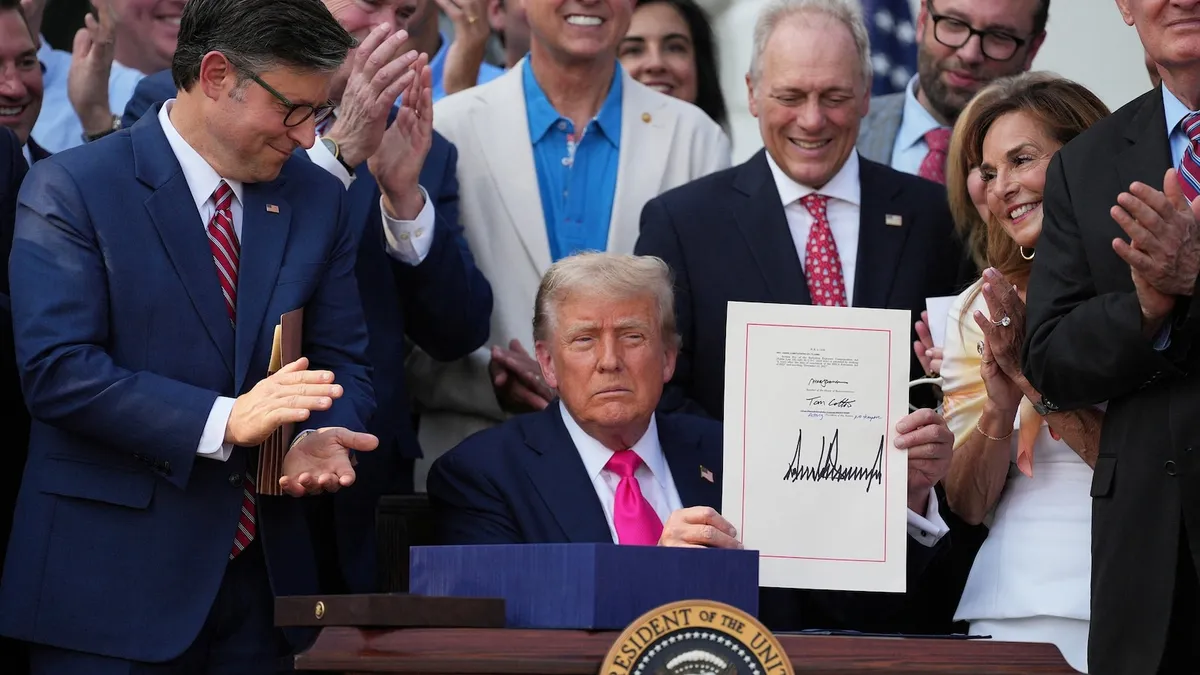
On July 4th, President Donald Trump utilized the backdrop of the White House's annual Fourth of July celebrations to announce the signing of a significant spending bill, marking what he referred to as his final victory lap. The legislation, which is poised to impose substantial cuts to government benefits, including Medicaid, while simultaneously increasing funding for immigration enforcement, was signed during a military family picnic held on Friday evening.
During his speech, Trump emphasized the various elements included in the bill, highlighting the introduction of the largest tax cut in American history and a new child tax credit. "So many things are being added that we wouldn't even have time to discuss them when we were doing it," he remarked, underscoring the extensive alterations made to the national economic landscape.
In a race against time, Trump urged Congress to pass the bill by July 4th, despite some Republican lawmakers expressing concerns over various issues, particularly the proposed impact on the debt ceiling. The finalized legislation includes an astounding $1.7 trillion in spending cuts, which Trump claims will go largely unnoticed by the general public. "Just waste, fraud and abuse in American history," he stated during his address from the White House.
The Fourth of July festivities featured several military flyovers, including a dramatic display by B-2 bombers. Initially, Trump announced that the flyover would coincide with the bill signing; however, it ultimately occurred prior to the official signing ceremony. In his remarks, Trump took the opportunity to laud the military's recent successes, particularly referencing the June 22 Iranian bombing mission, while criticizing the previous administration's military strategies. "We didn't have any crashes. We didn't lose any planes. We didn't lose anybody," he proclaimed, praising the stealth capabilities of the military aircraft involved.
In contrast, Democrats voiced strong opposition to Trump's spending bill, particularly regarding its extensive cuts to services that support the most vulnerable Americans. The legislation imposes new work requirements for Medicaid, which experts warn could leave millions without health insurance and lead to the closure of critical health centers in rural regions, according to industry stakeholders.
On Thursday, House Democratic leader Hakeem Jeffries made headlines by delivering a record-breaking eight-hour and 44-minute speech aimed at raising awareness about the potential ramifications of the bill. "We wanted to make sure that the American people had an opportunity to fully and more completely understand, in the light of day, just how damaging this one big, ugly bill will be to the American people," Jeffries articulated, underscoring the concerns of his party.
Trump responded to the criticisms leveled by Jeffries and other Democrats, dismissing their claims as a "con job." He stated, "They've developed a standard line, 'We can't let them get away with it. Oh, it's dangerous. Oh, everybody's going to die.' It's actually just the opposite. Everybody's going to live," emphasizing his belief in the positive outcomes he anticipates from the new legislation.
As the nation celebrates Independence Day, the implications of Trump's spending bill and its accompanying controversies will likely remain a focal point in the ongoing political discourse.